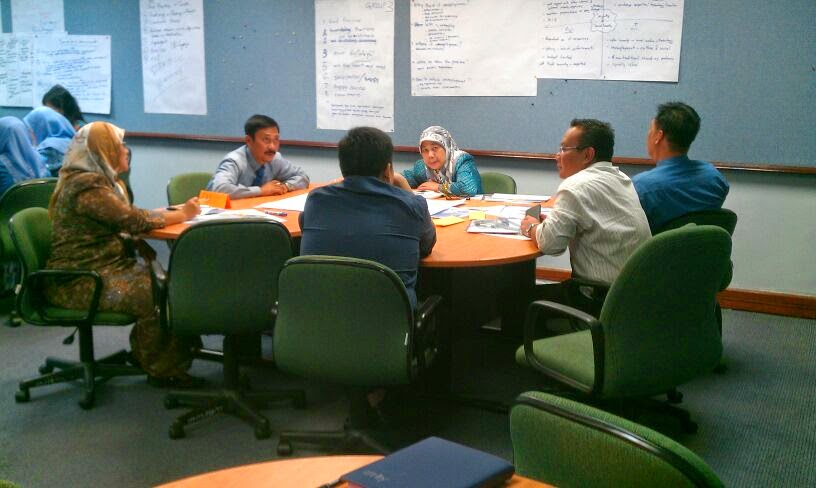Learning ESQ-based in policy management
Ten senior government officers
emerged from their two-day retreat at Civil Service Institute with new
knowledge and know-how on ESQ-based (Emotional Spiritual Intelligent-based)
policy making and management techniques.
They have not only gained valuable
new knowledge in contemporary policy management techniques at the two-day crash
course, but importantly they have discovered on how to add values and excel in
their works should they apply emotional and spiritual intelligence in the
process.
“It’s all been there all these
while, but because our brains were so over-loaded with the technical jargons in
contemporary management, we could not see and appreciate them”, commented some
of the course participants.
 “The two-day crash course has helped
refresh and reset our mind setting on modern management to be in sync with MIB
paradigm. Now we understand it better and would definitely apply them in our
thinking process”.
“The two-day crash course has helped
refresh and reset our mind setting on modern management to be in sync with MIB
paradigm. Now we understand it better and would definitely apply them in our
thinking process”.
“It may not be a new thing in the
context of contemporary and universally accepted management practices, but it
is undeniably emotionally and spiritually uplifting”, they added when asked to
share their views of the two-day workshop.
The first day session took them
back in time to learn from the invaluable experiences of the late Sultan Omar
Ali Saifuddien in building the nation from an unknown small backwater country
to a modern state.
They recited his famous ‘Syair Perlembagaan’, studied and dissected it for tips on his mission statement, purpose
and his objectives, on how he emphasised on the human dimension in his strategy,
how he championed inclusive development and so on and so forth.
They then learned on how to use modern
tools in policy making and policy management but with added values by applying
Islamic perspectives in the management of policies in protecting religion,
life, intellect, property and lineage/honour.
Also came under scrutiny was the
concept of Melayu Islam Beraja as a paradigm, the operational aspects of Negara
Zikir, the need to preserve and sustain the nation as a prosperous, peaceful
and tranquil nation ever-blessed by Allah in its journey to realise Vision
2035.
The two-day course was organised
by Institut Perkhidmatan Awam (Civil Service Institute) of the Prime Minister’s
Department. It was conducted by PPP Ilmu Alim, a registered local consultancy
firm with IPA.
















